Understanding Your Power: 7 Ways to Make Your Semester Overseas Less About You
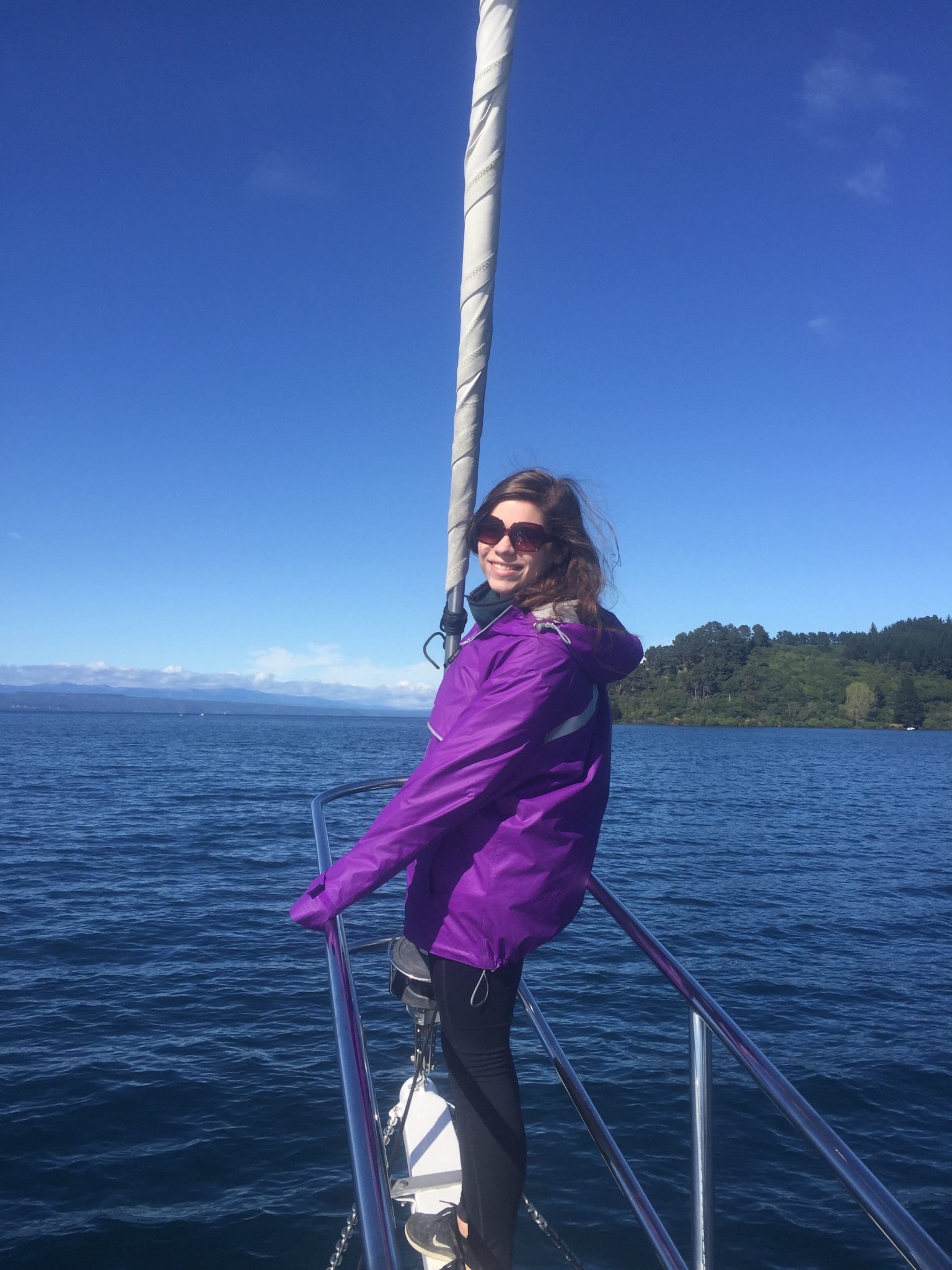

It’s cliché, but that doesn’t make it any less true: travel opens your eyes to new experiences, new-to-you cultures, new ideas, and new ways of living and looking at the world. But having the ability to both choose and afford to live overseas for a period of time is a privilege, one that many people around the world and within the United States don’t have.
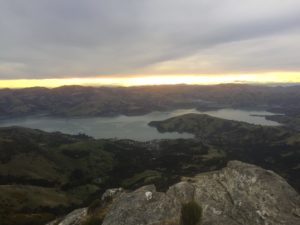
Simply put, privilege is an imbalance in power that favors certain groups. While it makes life easier for those who have it, many of them deny its existence. Access to education, let alone study abroad, is often privileged, dependent on socioeconomic factors beyond individual control.
Those with privilege have an obligation to understand these systems of power in order to help dismantle them. While no individual can do this alone, there are ways to avoid reinforcing the capitalist, imperialist hegemony that is the United States while you study abroad.
I’m no expert on this topic, merely a woman who loves travel and is aware that my privilege has allowed me to do quite a bit of it. Through IFSA, I spent a semester studying abroad in Wellington, Aotearoa-New Zealand – one of the coolest, windiest cities on earth. I’ve also been privileged to live and study in Germany, Ecuador, and Denmark for extended periods of time. Here are a few things I’ve learned along the way.
Get Political
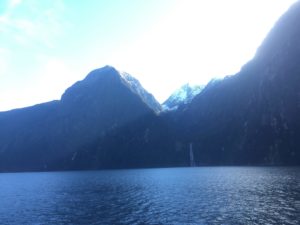
As a world superpower, the United States’ sphere of influence, while waning, still extends to most corners of the globe. Being aware of your privilege as a U.S. citizen is part of being a conscious traveler. And at some point, someone from your host country will probably want to discuss politics with you. At the very least, have an awareness of the domestic political climate of both your home and host countries before your journey overseas, regardless of whether or not you agree with the current administration.
I arrived in New Zealand several months before elections, when campaigns were in full swing across the North and South islands. New Zealand’s parliamentary system awards seats to political parties based on the proportion of the vote received, but in the general election of 2017 no party secured over 50% of the vote. For weeks afterwards the country was focused on what parties would form the government, as they call the party or coalition in power in parliament.
I was attending mantra meditation at the yoga lounge I frequented in Wellington with some kiwi friends from university when the news broke that the Labor party had managed to form a government with the New Zealand First and Green parties, making Jacinda Arden Prime Minister. I’ll never forget the relief and excitement that we all felt, and how invested I had become in the political process of a country that wasn’t my own. While there are major differences between them, issues such as race, gender, immigration, environment, and economic development matter both in the U.S. and Aotearoa, land of the long white cloud.
Understand your Purchasing Power
When visiting developing countries, the cost of living might be much cheaper than it is at home. While this can be great for students on a budget, don’t take the fun of haggling too far. When you’re trying to save a few bucks on groceries, a cab ride, or souvenirs, know that those few dollars might be the difference between having dinner or not that night for someone else.
Support Local Businesses instead of Multinational Corporations
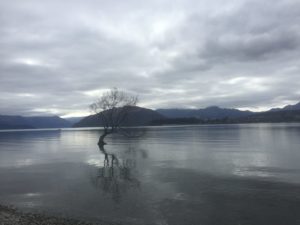
This is a good principle to follow whether you’re at home or overseas, but is especially important in both developing countries and places with high tourist volumes.
An influx of visitors can lead to locals being priced out of their own neighborhoods. By supporting local businesses, you’re putting money into the preservation of the community instead of corporate pockets.
Respect Local Laws
In New Zealand, freedom camping (camping not at a designated campsite) is usually illegal unless you’re in a self-contained campervan because travelers often leave garbage and generally don’t respect the environment or municipalities they are guests in. If you’re going around the country by van, stay at campsites (many are free!) instead of flouting local regulations. And whether you’re tramping in the wilderness or not, remember to take nothing but photos and leave nothing but footprints.
Less than two weeks after I arrived in Wellington I went on my first overnight tramp with the University of Victoria Tramping Club to celebrate the novelty of “Christmas in Midwinter” (…it was July). The hike ended up being relatively short, complicated only slightly by a river crossing that was a bit more dangerous (read: exciting) than expected due to heavy rain and flooding. All essentials were carried in on our backs: food, beverages, tents, cooking fuel, sleeping bags, the list goes on. And the next morning when we woke, we carried all of it back across the river and out of the woods.
Don’t Appropriate, Tokenize, or Exoticize other Cultures
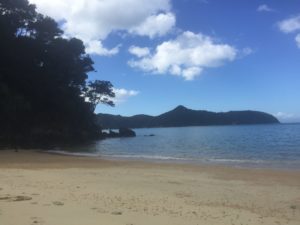
There’s a difference between cultural appreciation and cultural appropriation, and you should learn what it is before you go overseas. Taking part in native dress, food, and celebrations when invited is an incredible opportunity to learn more about the culture of the place you’re living. Getting a Maori tattoo because you think it’ll be a cool reminder of your semester overseas? Not so much.
Avoid Voluntourism and White-Savior-ism
Orphanages and schools are particularly popular choices for this, but more than 80% of children in the world’s orphanages have at least one living parent. Some institutions encourage or pay parents to give up their children with promises of healthcare and education, only for the directors to reap donations from well-meaning westerners while mistreating the children in their care. Not to mention, a constantly changing array of caregivers can create attachment issues.
Think about why you want to volunteer overseas and carefully consider what kind of organization you’d like to work with, or, when you come home, commit to volunteering somewhere on a regular long term basis instead.
Stay Safe
Students who study abroad come from all kinds of backgrounds and identify with different genders, sexualities, and ethnicities. Some places may not be safe for Americans, for women, for LGBTQ+ individuals, for people of color. Be aware of your surroundings, heed travel warnings, and while you should say yes to new opportunities, listen to your gut and avoid unsafe situations.
Privilege can be a tough topic to grapple with, and the list above is nowhere near exhaustive. Dismantling systems of power that took centuries to construct is impossible to do on an individual level, but that doesn’t mean that we don’t all have a part to play.
The ability to choose to study overseas is an immense privilege, and shouldn’t be taken lightly. When you’re preparing for your semester abroad, make sure you’re considering what kind of impact you want to have on a place, and not only what you’ll gain from the experience. Being aware of your power is the first step towards doing less harm.
Mary Creedon is a Quantitative Economics and Sustainability student at Providence College and studied abroad with IFSA at the Victoria University of Wellington in Wellington, New Zealand in Fall 2017.